Working towards a better world under World Health Organization (WHO) guidelines
5 comments
INTRODUCTION |
|---|
The scorching heat in Karachi is becoming almost unbearable, especially during the afternoons. The temperature recently hit 42°C, with a "feels like" index of 46°C, making it nearly impossible to step outside for work. This extreme weather serves as a reminder of the escalating threat of global warming. It underscores the urgent need for environmental action, such as planting trees, to lower the effects of climate change and protect our planet.
Turning our attention to more positive endeavors, I want to share an update on our ongoing dental outreach programs. In my last post, the Steemit team generously supported us, providing crucial financial assistance that made a significant difference in our efforts. This time, I'll be discussing our latest dental camp, which we organized with the guidance of a representative affiliated with the World Health Organization (WHO)
In the past 4-5 weeks, I have shared details about two of our dental camps on my profile. During this period, we successfully covered four schools, dedicating one day at each school for dental checkups and another day for focused group discussions. These discussions included the students who received checkups, their teachers, and their parents. This approach ensured that everyone involved had a comprehensive understanding of dental health and its importance.
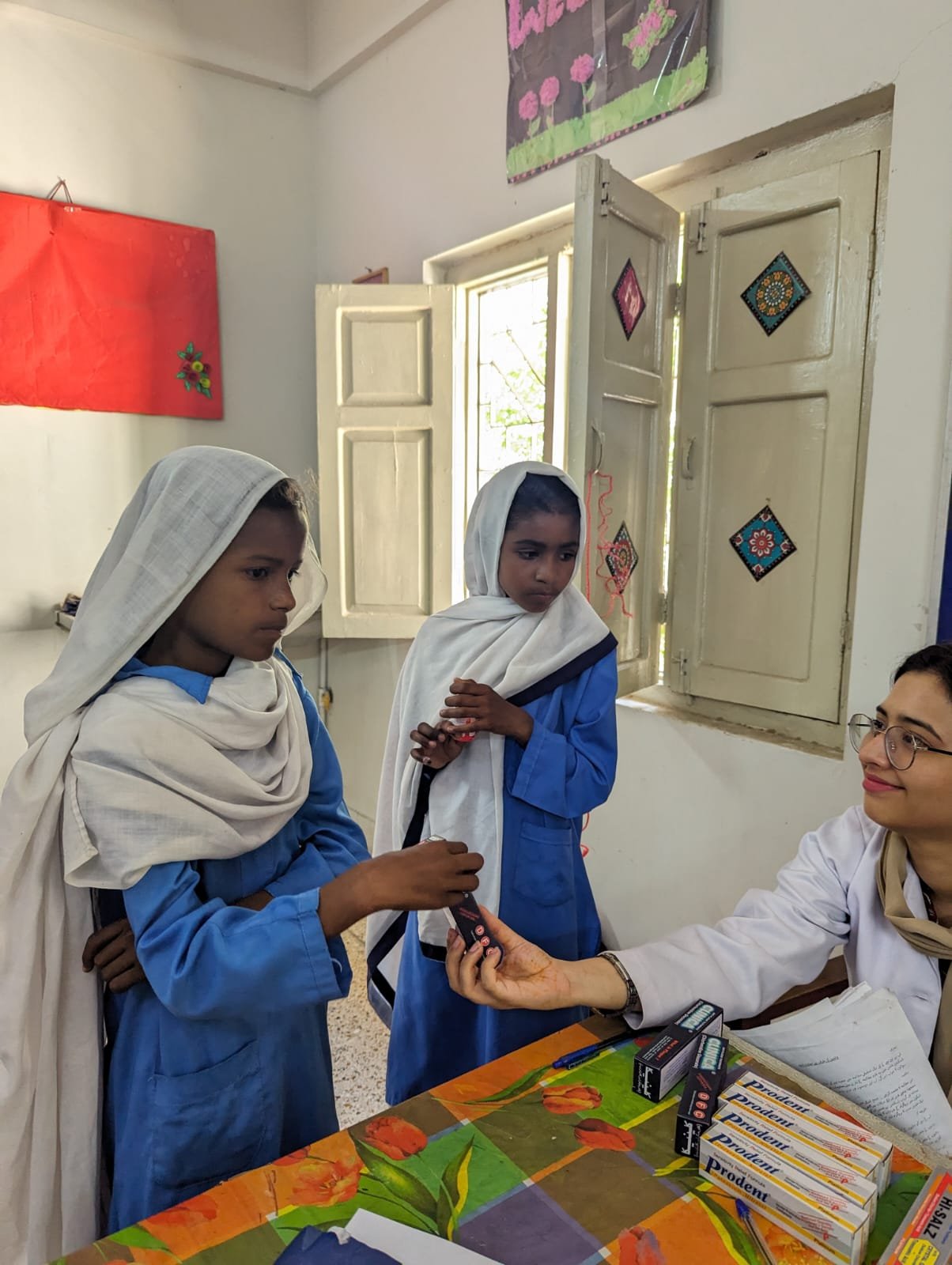
SCHOOL SELECTION |
|---|
Organizing a dental camp in the underprivileged communities of Pakistan requires meticulous planning and a clear strategy. The first step involves identifying the schools that are most in need. These schools are often in dire situations, where students lack access to basic dental care. By targeting these schools, we aim to provide free dental checkups to students who otherwise might never see a dentist
Finding an underprivileged school in a country like Pakistan is not a difficult task. With all government schools facing severe financial crises, poor hygiene conditions, and chronic staff shortages, the real challenge lies elsewhere. The primary issue is not locating schools in need but rather identifying those willing to participate in initiatives such as providing free dental check-ups for their students. Surprisingly, there are schools that remain uncooperative despite the clear benefits of such programs. Nevertheless, through our relentless dedication and efforts, we managed to connect with a few schools across different localities that are open to this beneficial collaboration
In Pakistan, the state of public education is dire. Government schools are underfunded, leading to crumbling infrastructure, a lack of basic resources, and inadequate sanitation facilities. Teachers are often underpaid and overworked, resulting in a high turnover rate and a persistent shortage of qualified staff. These challenges create an environment where health and hygiene are neglected, further exacerbating the plight of the students. Dental health, in particular, is a significant concern as it often gets overlooked amidst other pressing issues. Poor oral hygiene can lead to severe health problems, affecting children's overall well-being and their ability to focus and perform academically.
Introducing free dental check-ups in these schools, play a crucial role in improving students' health and education outcomes. However, the willingness of school administrations to participate is a significant hurdle. Some schools are skeptical of external interventions, fearing disruption or mistrustful of outsiders' intentions. Others may simply lack the organizational capacity to coordinate such initiatives. Despite these obstacles, our team has worked tirelessly to engage with school officials, educate them about the benefits of dental health programs, and address their concerns.
Through persistent advocacy and demonstrating the tangible benefits of these health initiatives, we have successfully established partnerships with a couple of schools in different areas. These schools have agreed to facilitate us in organizing free dental check-ups for their students, recognizing the long-term advantages of such programs.
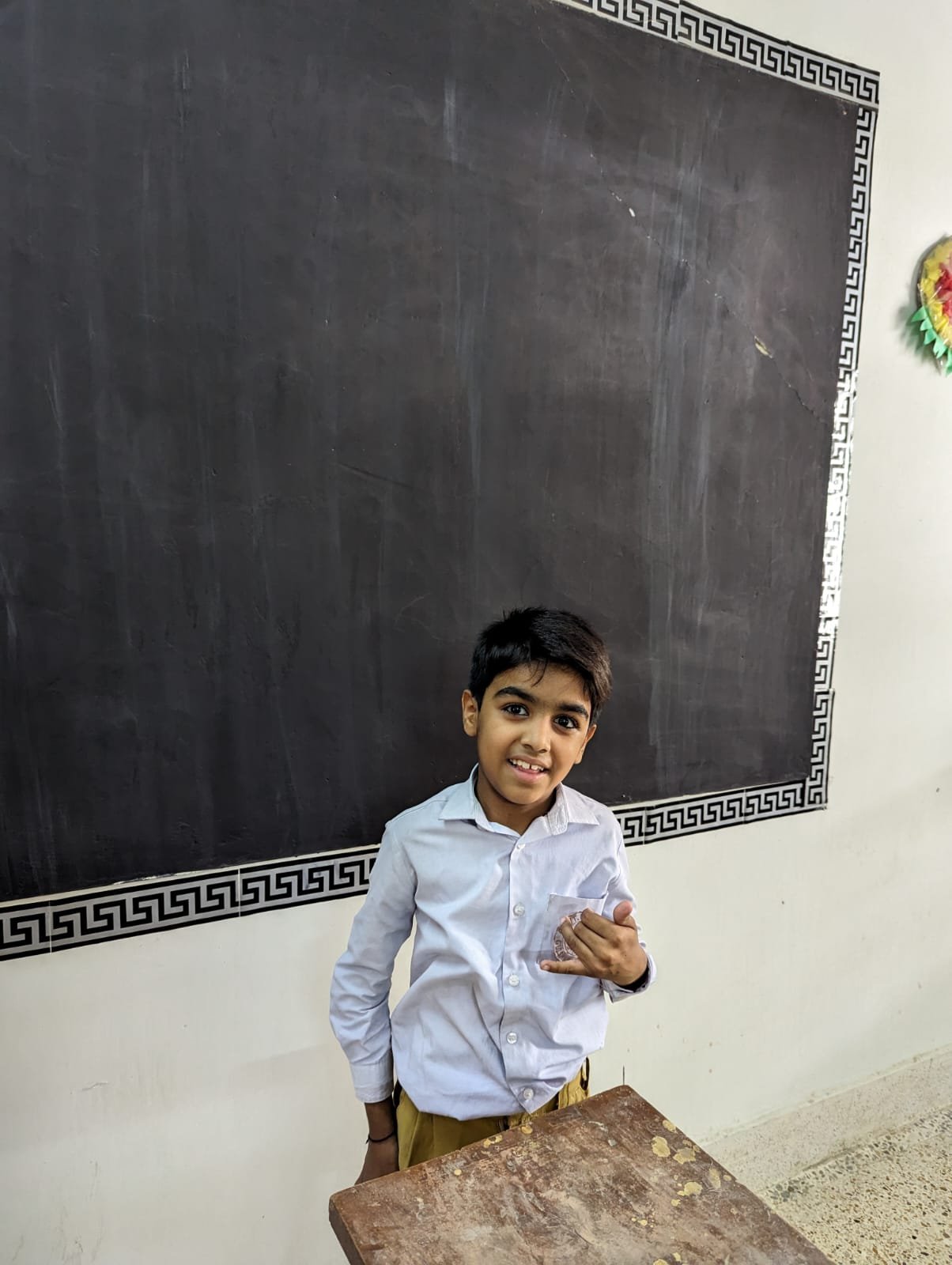 | 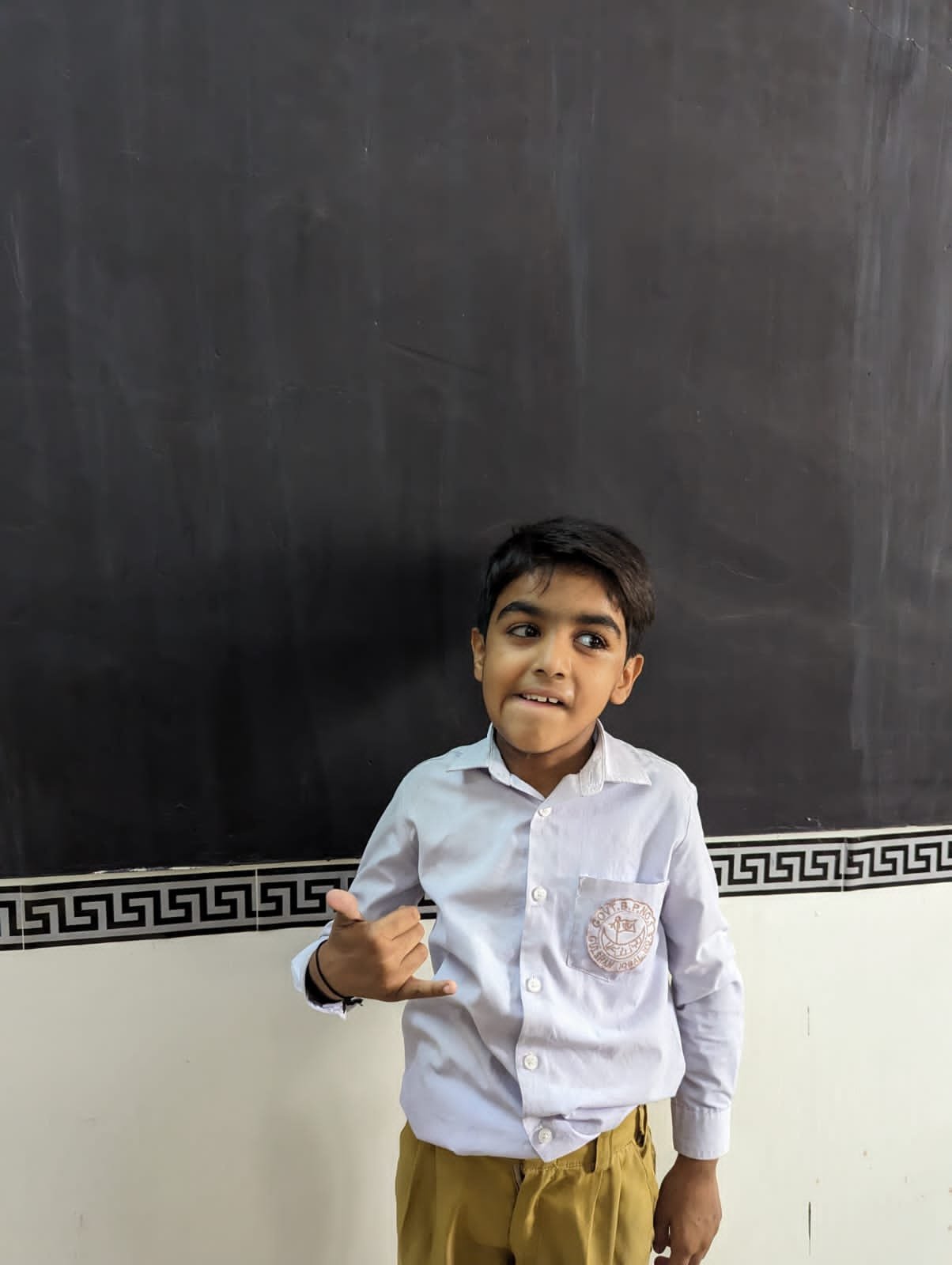 |
|---|
FUNDS |
|---|
One of the most significant challenges we constantly face is the lack of funds. Organizing dental camps has been financially draining for us, and the reason is quite straightforward: we finance these initiatives out of our own pockets. Securing sponsors for dental-related work is particularly difficult because it lacks the mainstream appeal of broader medical initiatives. Moreover, the government does not provide any financial support for organizing these events in public schools. Despite the vital service we offer, our entire team of dentists receives no compensation for their efforts; they volunteer their time and expertise purely out of goodwill.
Additionally, the cost of providing essential items like mouthwashes and toothbrushes to students free of charge adds a significant financial burden. I previously mentioned this issue, and the Steemcurator team offered tremendous support, for which we are immensely grateful. Their assistance made a substantial difference, but we still require a more permanent solution to sustain our efforts. Nonetheless, we are committed to continuing our work despite these financial constraints. We have come a long way through sheer determination, and we are resolute in our mission to keep moving forward.
To build a sustainable model, we are exploring various options for funding and support. We aim to create partnerships with local businesses, seek out grants, and launch community fundraising campaigns. Additionally, raising awareness about the importance of dental health and the impact of our work can help attract more attention and resources. While the road ahead is challenging, our unwavering commitment to improving the dental health of underprivileged students ensures that we will persist. We believe that with continued effort and support, we can secure the necessary funds to sustain and expand our dental camps, ultimately making a lasting impact on the communities we serve.
DENTAL CHECK-UP |
|---|
This time, we were fortunate to receive cooperation from the "Government Girls and Boys School Gulshan-e-Iqbal." For those unfamiliar with the government schools in Karachi, it's important to understand that these institutions often have vast tracts of land and numerous buildings. However, the maintenance of these facilities is typically substandard. The room assigned to our team was a an example of this neglect; it had no fans, only one central table, and was infested with lizards.
Our primary focus was on the boys and girls in the primary section, specifically grades 3, 4, and 5. During our visit, we conducted dental check-ups for a total of 60 students. To ensure parental consent, we distributed consent forms to all students in these grades a day before the check-up. These forms were handed to the headmistress, who then relayed them to our team leader. Only those students who returned with signed consent forms from their parents were allowed to undergo the dental examination.
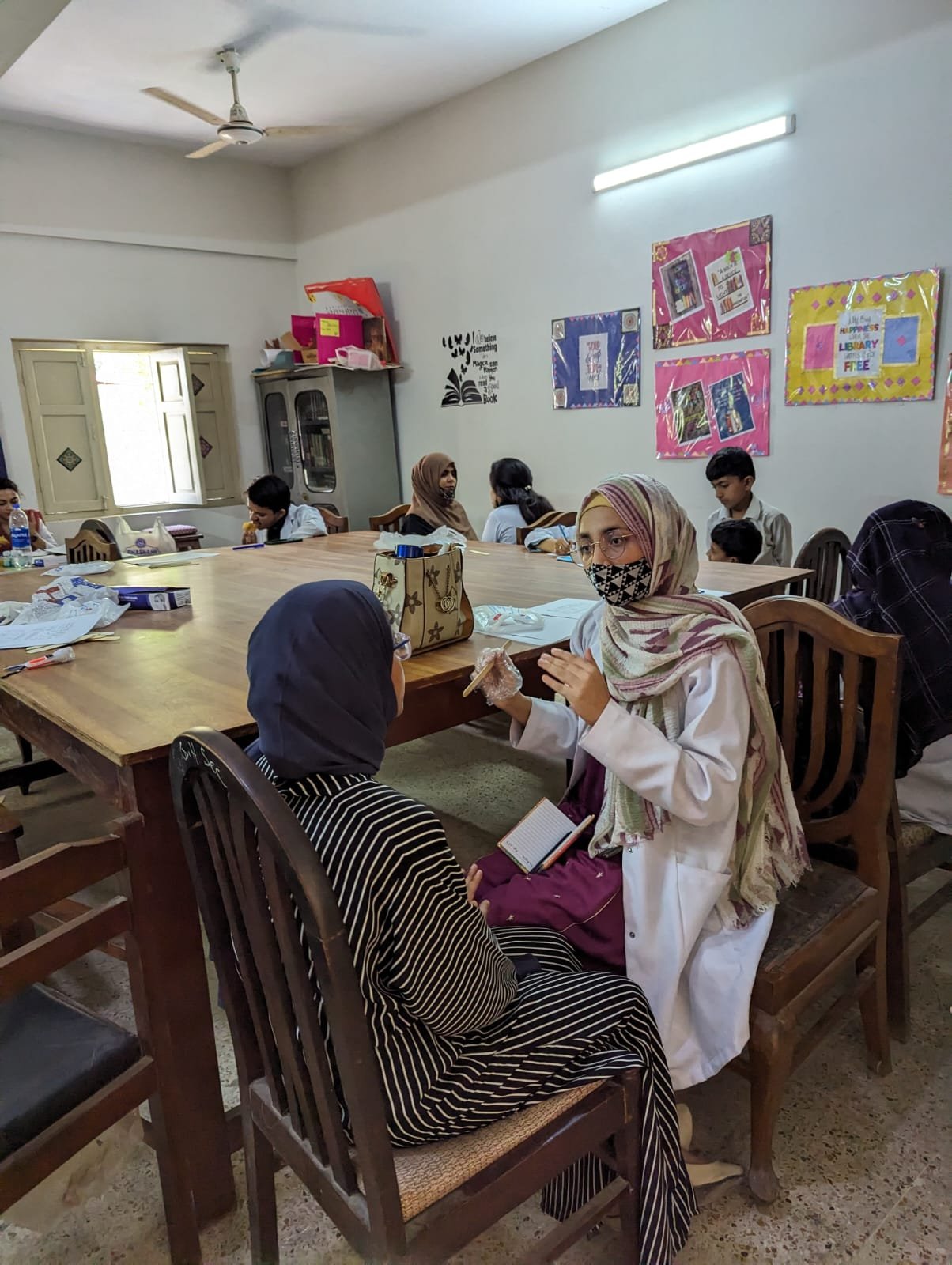
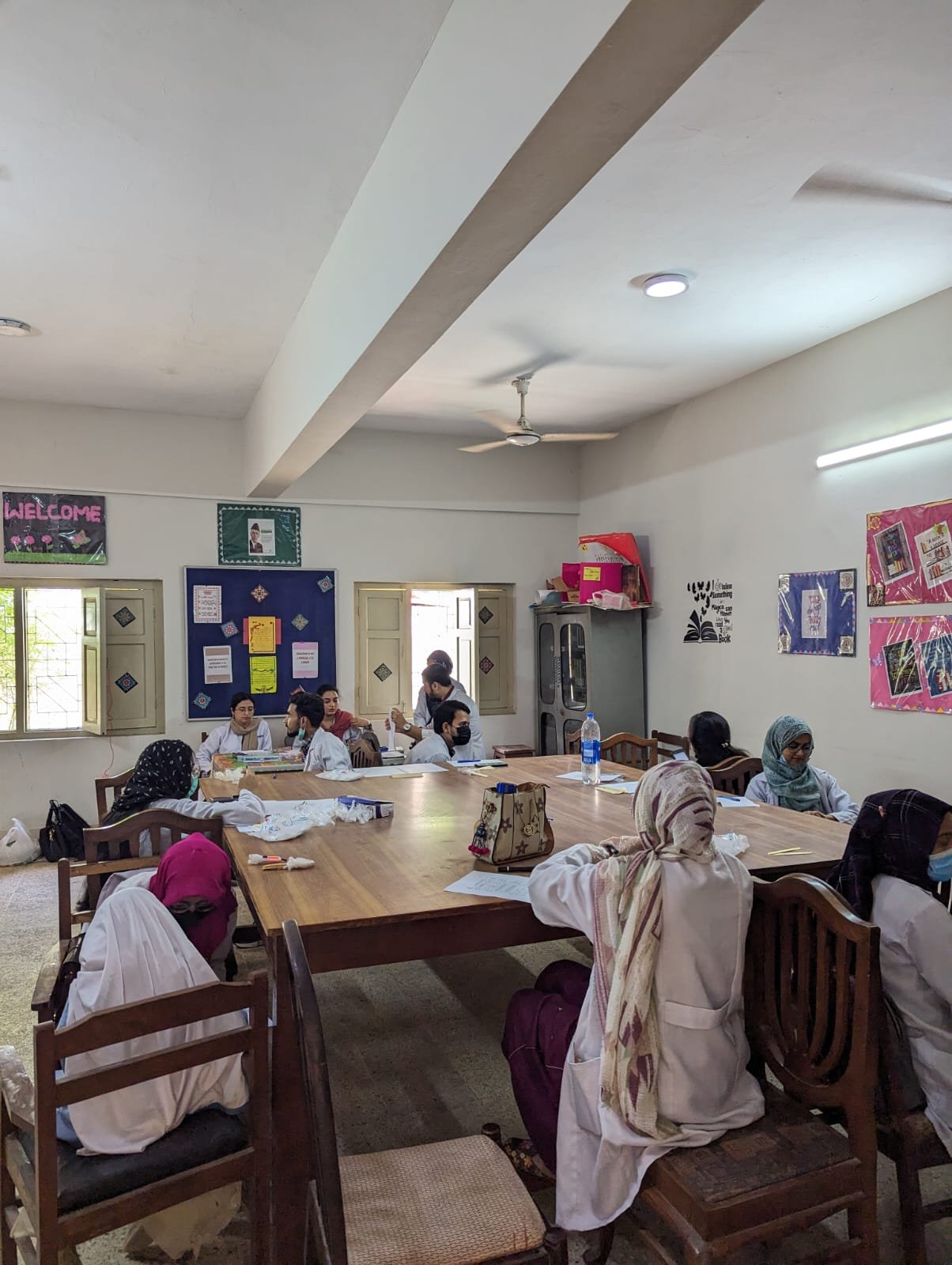
The dental check-up was crucial for these children. Of the 60 students examined, 42 were found to have prevalent caries, indicating a widespread issue of untreated dental decay. Additionally, four students were identified as needing orthodontic intervention, a clear sign of structural dental problems that could impact their long-term oral health and overall well-being. Only a small number of students had what could be described as a 'perfect set of teeth,' underscoring the pressing need for dental care and education in these schools.
To address immediate dental hygiene needs, we distributed a variety of dental care products to the students. Each child received toothpaste, mouthwash, and prophylactic medicines to help manage and prevent further dental issues. These supplies are critical in helping the students maintain better oral hygiene practices, something that is often neglected due to lack of resources and awareness.
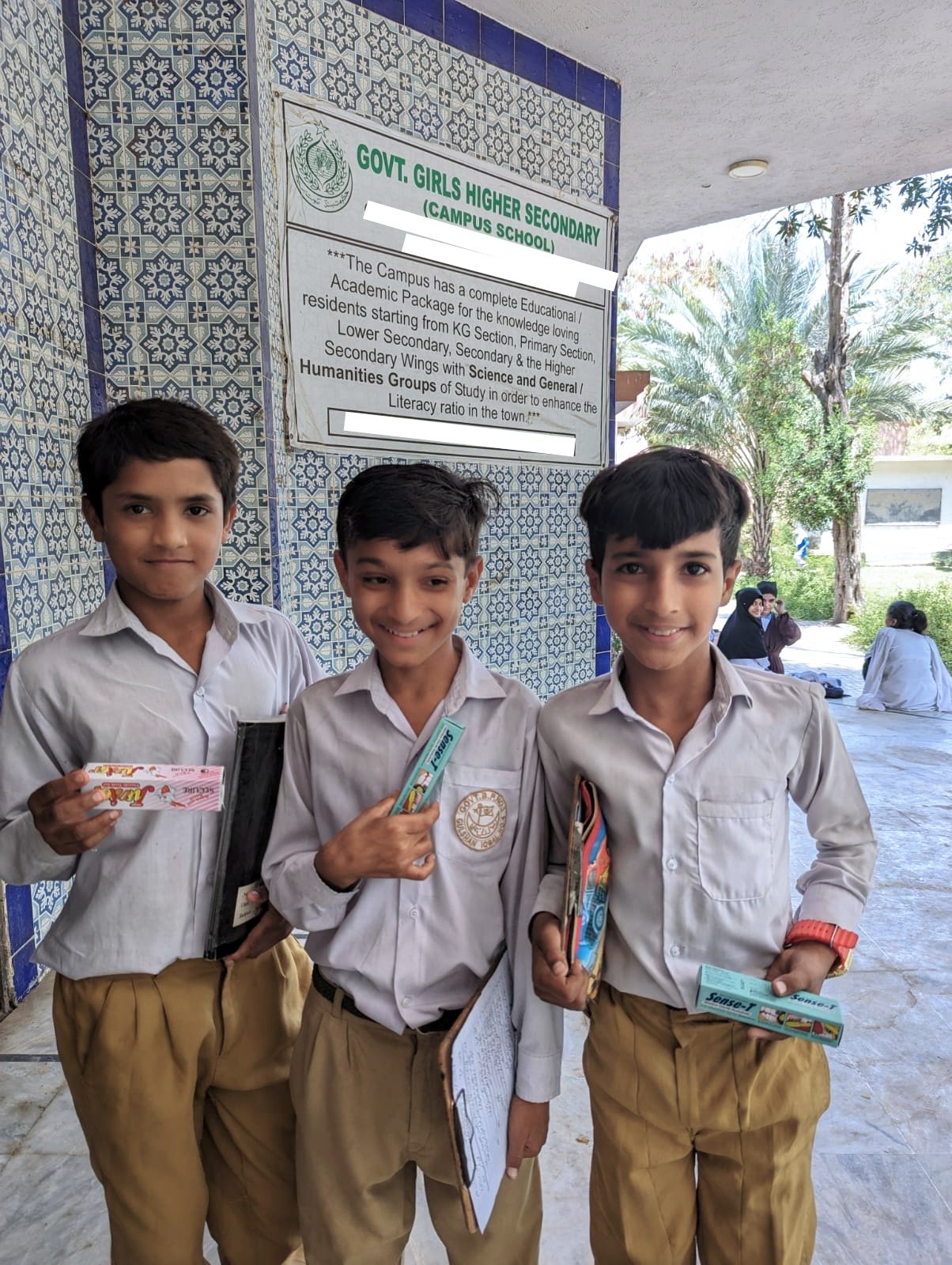
The following day, we conducted a focused group discussion, the details of which I will share in a subsequent post. This discussion aimed to engage students in conversations about oral health, educate them on proper dental care techniques, and gather feedback on their experiences and challenges.
Our initiative, while impactful, highlights the contrast between the resources available and the needs of the students. The prevalence of dental caries among the children we examined underscores a significant public health issue. Dental problems can lead to pain, infection, and difficulties in eating, speaking, and learning, which in turn affect a child’s ability to succeed academically and socially.
Through our efforts, we aim to provide more than just immediate relief. Our goal is to instill long-term dental hygiene practices and raise awareness about the importance of oral health. This involves not only treating existing issues but also educating students and their families about preventive care. The consent forms and the subsequent focused group discussions(will be shared in another post) are part of this broader educational approach, ensuring that parents are also involved in their children's dental health.
FINAL THOUGHTS |
|---|
The challenges we face, from financial constraints to logistical issues, are significant. However, the support from you guys and the dedication of our volunteer dentists demonstrate that progress is possible. While we continue to seek a permanent solution for funding and resources, we remain committed to our mission. The success of our recent camp at the Government Girls and Boys School Gulshan-e-Iqbal is a testament to what can be achieved through persistence and community engagement.
Moving forward, we plan to expand our outreach, seeking more partnerships and support to sustain and grow our dental health initiatives. By doing so, we hope to make a lasting impact on the lives of many more students, ensuring they have the opportunity to enjoy better health and brighter futures.
Comments